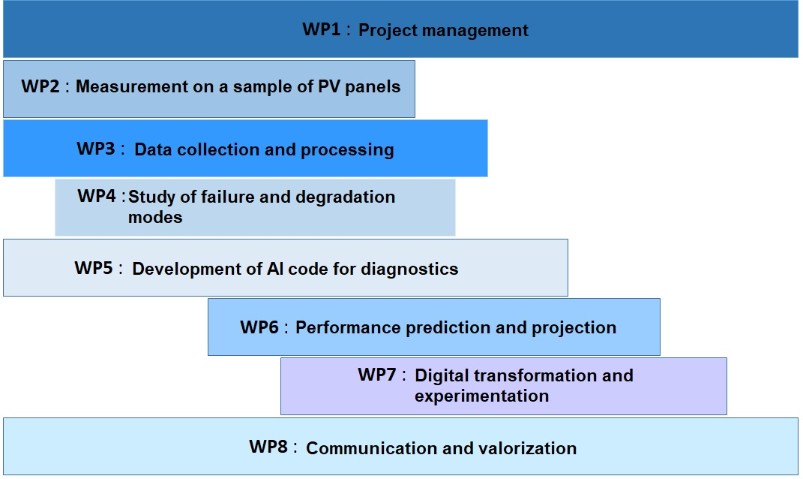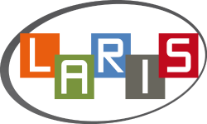- index
- >About
About
Context
France, in line with its Pluriannual Energy Program, is aiming for a 40% share of electrical renewable energies by 2030. This requires an increase in photovoltaic module production and installation capacity.
The DIA-SOLAIRE research group aims to develop integrated diagnostic and prognostic approaches for photovoltaic power plants, combining physical models and data, while using statistical and learning methods. The aim is to extend the lifetime of photovoltaic power plants and optimize their energy performance.
The increasing capacity of photovoltaic (PV) power plants requires rapid production and installation of PV modules, but numerous failures and degradations increase maintenance costs. Normal and future operating conditions add further uncertainties, complicating performance guarantees. Expectations in terms of energy performance are high. It is therefore necessary to develop tools for diagnosing and predicting problems, in order to ensure controlled energy production.
The DIA-SOLAIRE consortium are working with operators to overcome the scientific and technical challenges identified.
DIA-SOLAIRE has been financially supported by the Agence Nationale de la Recherche (ANR) since February 2025.
Project aims
The tools that will be developed as part of the DIA-SOLAIRE ANR project could undeniably provide a benefit in optimizing the operation of a photovoltaic power plant, and thus contribute to the current energy and ecological transition. It will allow photovoltaic installations to operate as close as possible to production (quantity of electricity theoretically produced depending on its location).
- The contribution of this project aims to address the following challenges:
- respond to the challenges linked to increasing the production capacity of photovoltaic (PV) power plants,
- keep PV panels alive and increase their lifespan by taking into account technical, human and environmental factors,
- remedy the increasingly frequent malfunctions of PV plants and limit the associated maintenance costs,
- support operators and maintenance services in the management and recycling of their used equipment.
The expected benefits can be summarized as follows:
- Development of AI-based tools for the diagnosis and prognosis of photovoltaic power plants, ensuring their maintenance in operational condition. Validation of learning methods to estimate in real time the state of health of components, whether old or new.
- Implementation of fault signatures and health indicators specific to photovoltaic power plants.
- Improved knowledge of malfunctions of PV power plant components.
- Development of recommendations for maintenance practices for PV power plants.
- Optimization or reduction of LCOE (Levelized Cost of Energy), and consequently, operating and maintenance costs.
Missions description

- WP1 - Project management focuses on project management, organizing steering committees and monitoring actions using project management tools
- WP2 - Measurement on a sample of PV panels focuses on the development of a suitable measurement chain and the measurement of characteristics on a sample of PV panels in situ.
- WP3 - Data collection and processing enables you to collect, mine and process various data from PV power plants
- WP4 - Study of failure and degradation modes establishes a database of faults and studies their impact on the performance of PV power plants
- WP5 - Development of AI code for diagnostics aims to develop artificial intelligence codes to identify failures and degradations
- WP6 - Performance prediction and projection concerns the development of tools for predictive analysis of PV plant performance indicators and the establishment of links between drifts and causes using AI. This workpackage also includes economic models for estimating plant profitability
- WP7 - Digital transformation and experimentation will study the impact of the new tools developed on maintenance practices, including organization, training and communication.
- WP8 - Communication and valorization is devoted to valorizing results through communication actions and a technology transfer study with the help of the SATT (Ouest valorisation) french body.





